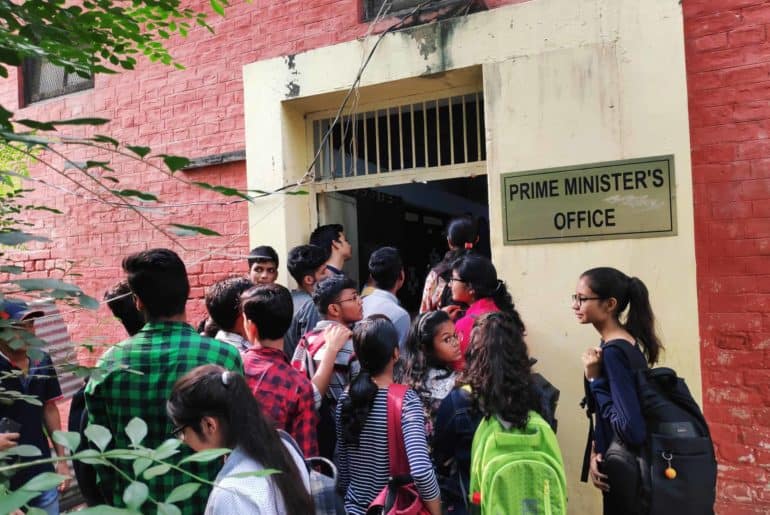On 12 March, the Leader of Opposition of the Parliament of Hindu College was allotted an office space, for the first time in the Parliament’s near hundred-year-old history. How significant would this be?
A day before Hindu College’s annual fest, Mecca, Naveen Kumar, the Leader of Opposition of the College Parliament, proudly announced on his official Facebook page the allotment of a formal office space to the parliamentary representative.
Unlike many students’ unions, Hindu College has a Parliament – christened the ‘Parliament of the Republic of Hindu College’ – to which the student elections are held. According to the constitution of the college, the candidate with the maximum number of votes is elected as the Prime Minister (PM), who then appoints his Cabinet, while the candidate securing the second highest number of votes becomes the Leader of Opposition (LOP). The same constitution also provides for formal office spaces to both functionaries. However, while the Prime Minister’s Office (PMO) had been in place in the college, the office of the LOP had been absent till now.

Naveen Kumar, the incumbent Leader of Opposition of Hindu College.
The situation changed under Naveen’s incumbency. He tells us that he had been at work since September to get the space allotted. While his term is about to end soon, he hopes that the new development will benefit the subsequent LOPs.
Often, the margin between the votes pulled in by the PM and the LOP respectively isn’t very significant numerically. Naveen, who lost to Shreyash Mishra, the Prime Minister, fell only 44 votes short. Hence, the LOP also represents a major chunk of the students, as Naveen tells DU Beat, making an office space all the more necessary.
Elaborating on the significance of the office, he says that it would allow students to raise grievances and make the LOP more accessible so that their complaints could be better addressed – ultimately increasing accountability of the representatives, while also enhancing the significance of the position itself.
However, a problem that still persists is the low number of Parliamentary sessions organised in the college. Many students express this sentiment: a college that once was an intellectual centre of the nationalist movement, now sees its culture of debate and discussion declining. Without Parliamentary sessions, one is made to wonder if the representatives can actually be held accountable and whether the politics of the college could go beyond Mecca to addressing more pressing issues.
Pointing at how the office has been a long time in the making, Naveen says, “People tell me that it took a long time and that my term is ending; I tell them it’s been a hundred and twenty years since the college was established. Compared to that, the few months of my term are nothing!”
Image Credits: DU Beat
Prateek Pankaj

